With the Turkish incursion into Kurdish fighter-controlled northeastern Syria, the war has taken a new turn. It was long in the making, yet most stakeholders are reevaluating risks and losses rather than counting benefits.
The damage to U.S. positions and influence is heavy, as my Brookings colleagues have carefully assessed. The hastily negotiated ceasefire deal cannot rehabilitate the compromised U.S. credibility, even if it holds. Turkey finds itself in deep trouble, which affects President Recep Tayyip Erdoğan’s calculus for consolidating domestic support for the military operation — which should have been called “Violent Quagmire” rather than “Peace Spring.” Israel is deeply concerned about the consequences of this intervention, and Iran is also signaling its disapproval.
Russia, for its part, is typically portrayed as the party than benefits the most from this micro-geopolitical scramble. But in fact, Moscow has maneuvered into a rather tight corner, where its obligations are heavy and the profits are far from rich.
Reconfigured theater
The presently paused Turkish operation is not going to establish anything resembling a 20-mile deep and 300-mile long “safe zone,” but it has drastically altered the multi-party balance of forces in northern Syria. The Kurdish People’s Protection Units (YPG) cannot withstand the Turkish army offensive and cannot completely withdraw from its home territory, but it is set to continue attacks on enemy forces inside this zone and across the border. The arrival of the Syrian army, which is not a party to the ceasefire deal, is certain to complicate the combat situation further. The clashes between Turkish troops and the Assad regime brigades, which know how to cooperate with the YPG, are certain to escalate. Russia is trying to separate the Turkish and Syrian forces, but what Russia can do in the particular case of Manbij goes entirely beyond the reach of its limited number of special forces, even if reinforced by the “Wagner” mercenaries.
One of Russia’s main goals in Syria for at least two years has been eliminating rebel control over Idlib province, which sits uncomfortably close to the Russian Khmeimim airbase near Latakia. Turkey objected stubbornly to this offensive, and now, irked by the international condemnation of his far-from-successful operation, Erdoğan is hardly going to be agreeable. What is more, the Syrian army deploying along the contested border with Turkey would not be able to gather sufficient forces to conquer Idlib, even with Russian air strikes. Another complicating factor for Moscow is the mass escape of prisoners of war from the Kurdish prisons, which strengthens the possibility of an ISIS revival. Russia has been remarkably successful in preventing the return of “veterans” of the army of the “caliphate” to the North Caucasus, but the threat of a new wave of terrorist attacks is looming.
Reduced leverage
The gain for the Assad regime, which has expanded its territorial control and subdued the Kurds without firing a shot, is not necessarily a gain for Russia, which seeks to retain a formative influence on Syria. For two and a half years, Moscow has attempted to transform Syria in cooperation with Turkey and Iran, and now this “Astana format” has all but expired. Erdoğan is not going to accept any Kurdish representation in the U.N.-backed constitutional committee, and the Iranian leadership will torpedo all Russian political designs and insist on an “Islamic republic” model. Russia doesn’t have sufficient resources to invest in post-war reconstruction, and the continuation of the Syrian intervention is increasingly unpopular in Russian public opinion. Unlike the United States, Russia can present itself as standing firm with its allies, but the idea of patron-client loyalty is non-existent in its Middle Eastern policy, where alliances are always a matter of transactional convenience.
Putin followed the course of the Turkish operation while travelling to Saudi Arabia and the United Arab Emirates, which both unequivocally condemned the incursion, leaving Russia as the only party to the war that didn’t. The results of the long-planned trip were rather underwhelming, and the prospect of further coordination of cuts in oil production in order to prop up the price was penciled only provisionally. The Gulf producers understand perfectly clear that Russia stands to benefit from every disruption in their exports, and its stakes in various energy projects are primarily a means of managing the acute threat of over-production. Russian diplomacy works hard on securing for the Kremlin the privilege of being able to talk to all parties to multiple Middle Eastern conflicts, but this versatility implies that neither Iran nor Israel nor even the Assad regime can put any trust into these communications. The ambivalence regarding the Turkish offensive illuminated this Russian duplicity.
Devalued assets
Russia has invested much effort and resources into Syrian intervention not because it sees the Assad regime as an indispensable ally but because it found there an opportunity to turn a local conflict into a grand geopolitical game. Moscow issued many declarations demanding the withdrawal of U.S. forces, but in fact, it valued the interactions with Washington very highly and placed much emphasis on its ability to make a difference in the fight against ISIS. The “deconflicting” military-to-military mechanism has remained one of the few channels that worked in the times of breakdown of arms control negotiations. Now that the U.S. withdrawal is indeed happening, Russia finds the value of its high-risk assets in Syria much diminished.
Every quarrel inside NATO is always a bonus for Russia, and Erdoğan’s unilateral decision to invade Syria has triggered a serious crisis in relations with allies. NATO Secretary General Jens Stoltenberg puts his best effort in damage control, but Moscow has every reason to expect deep and bitter discord. Its offer of Su-35 fighters as a substitute for the cancelled U.S. F-35 program can become practicable, but what is more important for the nuclear-centric Russian strategic thinking is the prospect of the United States removing B61 nuclear bombs from the Incirlik airbase in Turkey. NATO’s southern flank is in disarray, but Russia still needs to find a way to exploit this confusion.
Its activities in the Black Sea theater dominated by the “fortress Crimea” can become even more assertive, but the aggressive intercepts of U.S. Navy ships and airplanes give only that much satisfaction to Russian top brass. The main security problem for Russia is still the mutating conflict with Ukraine, and the looming question is whether Erdoğan’s enterprise with projecting power into Syria might tempt the Kremlin to break the deadlock in the Donbass war zone. European “guarantors” of the Minsk agreements will be shocked, but Moscow interprets their irrelevance in Syria as an inability to get their act together in the absence of U.S. leadership. Russia made the military move to Syria in 2015 in order to distract attention from Ukraine, and now it has an opportunity to hit back.
The Brookings Institution is committed to quality, independence, and impact.
We are supported by a diverse array of funders. In line with our values and policies, each Brookings publication represents the sole views of its author(s).
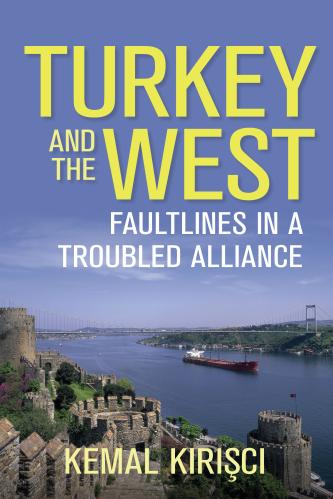
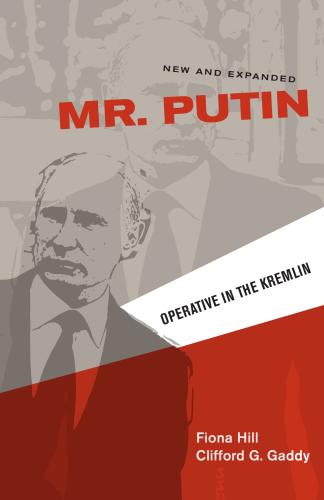
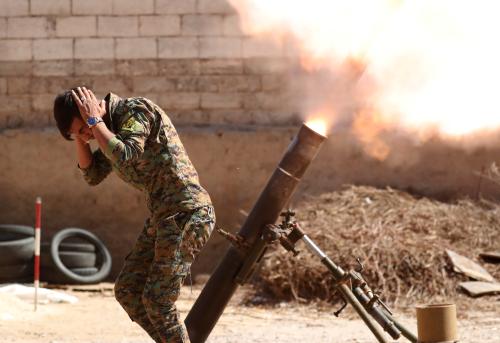
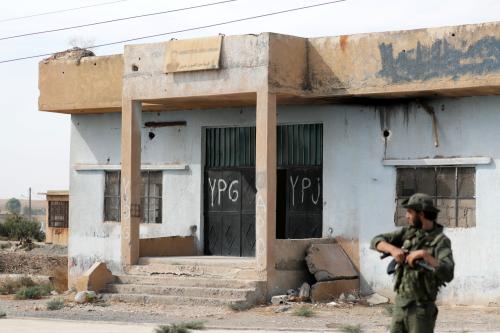
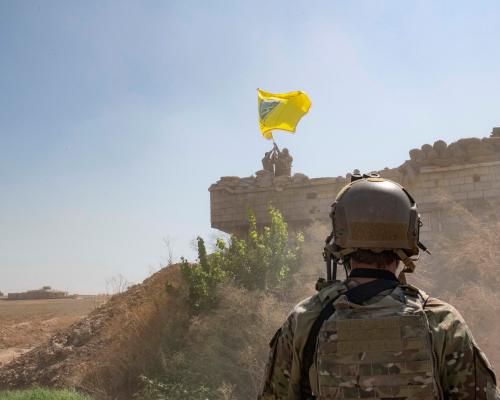

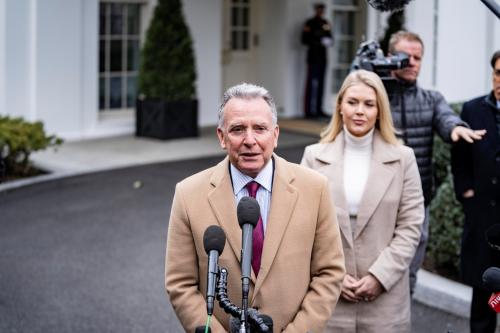
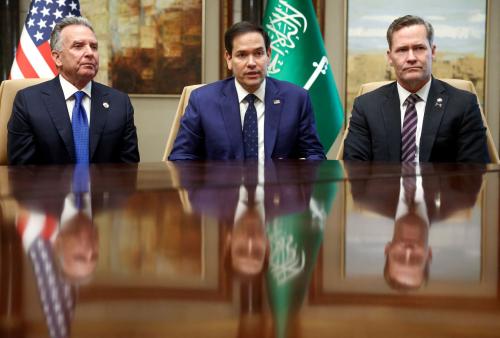
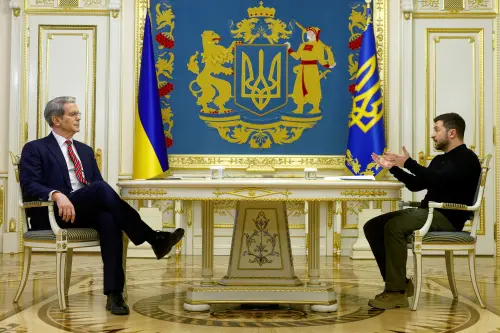
Commentary
Russia finds few fruits to harvest in the scramble for eastern Syria
October 18, 2019